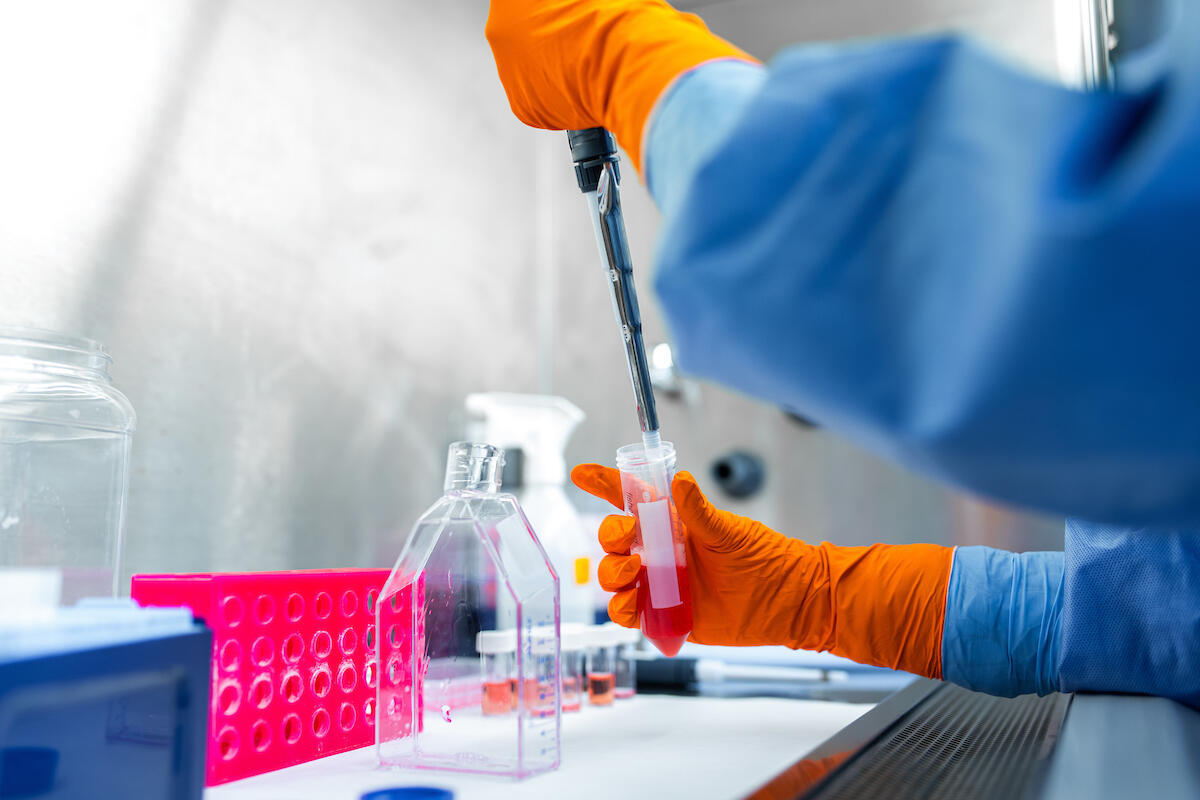Channels
Special Offers & Promotions
£10m funding for AI-powered robotic labs that will accelerate new treatments for deadly infections

- Life Sciences Innovation Zone funding for new high-security facility
- Robotic labs will speed up drug testing and approval
- Based at Liverpool School of Tropical Medicine (LSTM) and supported by the Infection Innovation Consortium (iiCON)
- Set to be open early 2027
- Forecast to generate £40m investment in first three years – creating jobs and driving research
New AI-powered, robotic labs that will accelerate development of new treatments for deadly diseases are to be built in Liverpool after £10m Innovation Zone funding was agreed.
The High Containment Level 3 labs, located at the Liverpool School of Tropical Medicine (LSTM) and supported by the Infection Innovation Consortium (iiCON), will be capable of handling a range of pathogens during development and validation of new treatments that could save lives worldwide.
The new laboratories will be fitted with state-of-the-art robotics, AI, and liquid handling systems to safely progress research and development of new vaccines, drugs and diagnostics for high-risk and deadly infectious diseases.
LSTM is already home to the largest concentration of Containment Level 3 laboratories in the North West, which played a key role in the rapid response to the COVID-19 pandemic.
The new facility will also support the next phase of iiCON’s development, bolstering the infection innovation ecosystem between industry, academia, and the NHS to enhance the discovery and route to market for products that tackle infectious disease.
The new laboratories will enhance innovative human organoid research, which involves sophisticated technologies using tissues grown to mimic different human organs. The facilities will enable closer collaborations with industry and potentially speed up regulatory approval for new treatments.
As well as saving lives, the robotic laboratories are forecast to generate £40m of investment in the first three years - creating well-paid jobs and driving research.
Liverpool City Region Mayor Steve Rotheram said: “Robotic labs might sound like something out of science fiction, but this is very much science fact – and a massive vote of confidence in our region’s position as a global leader in health innovation.
“We saw during the pandemic just how vital our local life sciences sector is—not just to our region, but to the world. This investment will build on that legacy, helping to fast-track life-saving treatments while attracting new businesses, creating high-quality jobs, and keeping our brightest minds here in the Liverpool City Region.
“This is what devolution is all about—backing our strengths, bringing in investment, and making sure we’re shaping a healthier, fairer, and more prosperous future for our area.”
Professor Giancarlo Biagini, Pro Vice-Chancellor for Research and Innovation at LSTM said: “LSTM is proud to receive this vital investment, which, alongside funding from UKRI’s Expanding Excellence in England (E3) fund and the Wolfson Foundation, enables us to establish a cutting-edge automated facility for developing advanced human infection models for emerging and high-consequence diseases.
“This combined £20m initiative will accelerate the preclinical development of new therapeutics, vaccines, and diagnostics - strengthening the UK’s position as a global leader in health innovation. This investment aligns with our regional commitment to driving health innovation and regional prosperity, ensuring that the Liverpool City Region remains at the forefront of health science innovation and impact."
Professor Janet Hemingway, founding director of iiCON, said: “iiCON is delighted to support this transformative initiative. By harnessing iiCON’s extensive network of industry, academic, and clinical partners, we will ensure this cutting-edge facility is maximised to drive innovation and ultimately improve health outcomes.
“This investment strengthens Liverpool City Region’s position as a global hub for infection innovation and reinforces our commitment to fostering impactful collaborations, supporting SMEs, and creating high-value jobs. Through iiCON’s specialist research platforms and translational expertise, we will work closely with partners to unlock the full potential of this facility, ensuring it delivers real-world impact for patients, communities, and the wider economy."
Combined Authority Cabinet Member for Innovation, Cllr Liam Robinson said: “iiCON is a superstar of Liverpool City Region innovation – helping to save countless lives through its world-leading fight to control and prevent deadly infections.
“This hi-tech investment through our health and life sciences innovation zone programme promises to speed up the discovery of new treatments which will drive jobs and prosperity in the city region, while making the world a safer place.
“It will also further cement the city region’s status as a global leader in the fight against some of the world’s deadliest infections.”
Founded in 2020 with an £18.6m Government grant, iiCON has quickly grown into a £260m programme working with a global network of more than 1,000 organisations, creating hundreds of jobs and bolstering the city region’s R&D infection spend by £1bn.
By enabling industry access to world-leading facilities and expertise, it has supported 36 new products to market, with more than 5 billion units of life saving products and treatments reaching communities across the world.
iiCON’s ambitious new lab project forms part of the 10-year Liverpool City Region Life Sciences Innovation Zone programme which is expected to attract up to £800m of public and private investment and create 8,000 new skilled jobs to the region.
The Liverpool City Region Life Sciences Innovation Zone Programme (LCR Innovation Zone Programme) is part of the Government’s national Investment Zone Programme.
Media Partners


